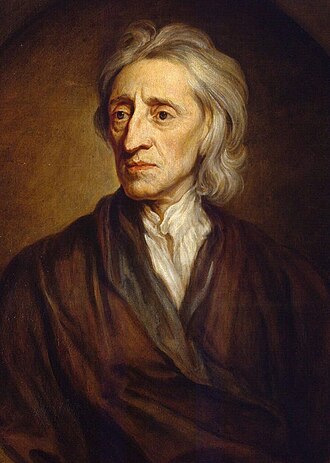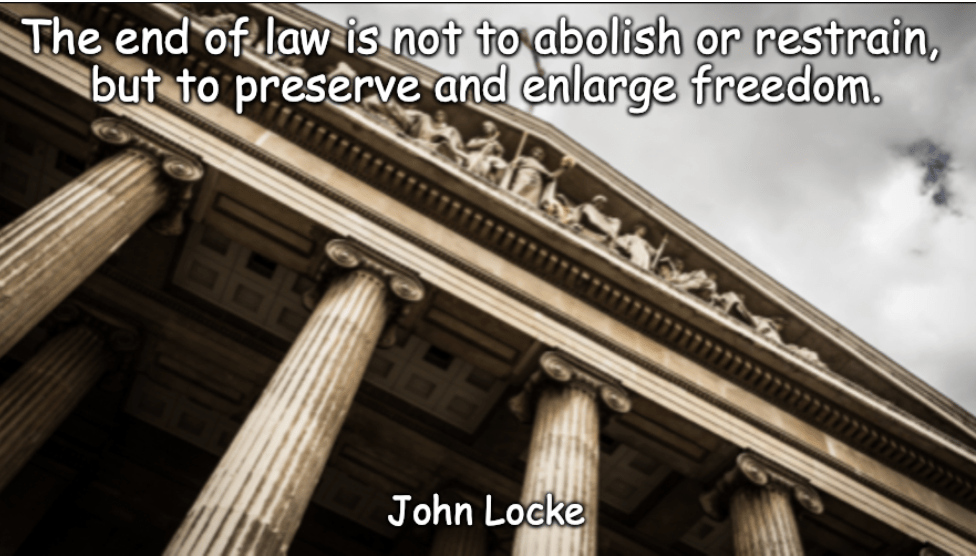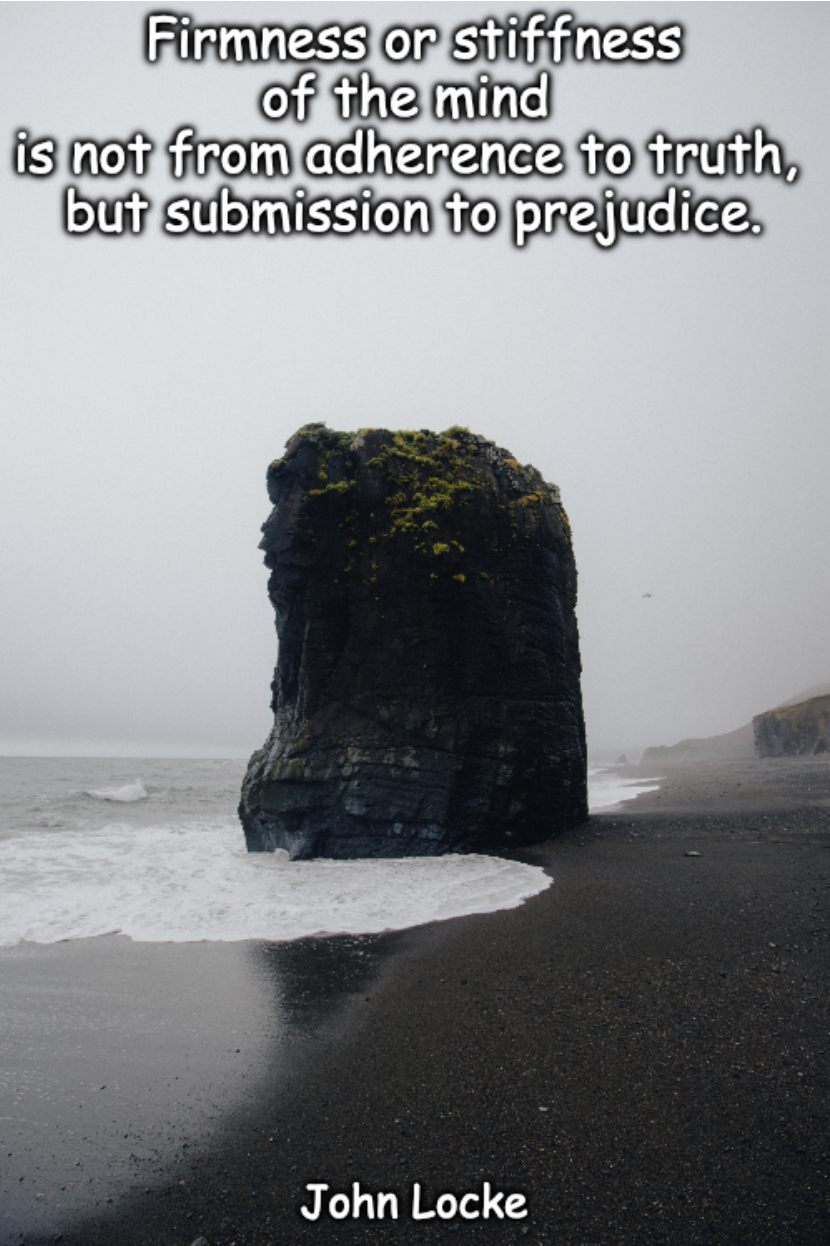John Locke:
(Wrington near Bristol, 29 August 1632 – High Laver, Essex, 28 October 1704).
English philosopher, economist and physician during the period of the early Enlightenment. He was friends with Robert Boyle and Lord Ashley.
He was also affiliated with the Cambridge Platonists, but he did not follow them in all aspects. Locke, in his views on unwritten natural law as the basis of formal constitutional law, made the social contract the basis of his advocacy of popular sovereignty, the idea that the sovereign or government should reflect the will of the people.

Reading furnishes the mind only with materials of knowledge; it is thinking that makes what we read ours.

The end of law is not to abolish or restrain, but to preserve and enlarge freedom.

Comment: Perhaps this was once the intention, now this is not true.
Firmness or stiffness of the mind is not from adherence to truth, but submission to prejudice.

The only defense against the world is a thorough knowledge of it.

I have always thought the actions of men the best interpreters of their thoughts.
